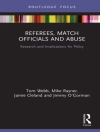A Hunter’s Confession tells the story of hunting in David Carpenter’s life, including the reasons he once loved it and the reasons he no longer pursues it. When he was a boy, Carpenter and his father and brother would head out along the side roads and into the prairie marshlands searching for duck, grouse, and partridge. As a young man, he began skulking around the bushes with his hunting buddies and trudging through groves of larch, alpine fir, and willow in search of elk. Later, hunting became a form of therapy, a way to ward off melancholy and depression. In the end, as a result of a dramatic experience after shooting a grouse, Carpenter gave up hunting for good.
Winding through this personal narrative is Carpenter’s exploration of the history of hunting, subsistence hunting versus hunting for sport, trophy hunting, and the meaning of the hunt for those who have written about it most eloquently. Are wild creatures somehow our property? How is the sport hunter different from the hunter who must kill game to survive? Is there some sort of bridge that might connect aboriginal hunters to non-aboriginal hunters? Why do many hunters feel most fully alive when they
Tabella dei contenuti
Preface 1
1 That Good Old Time 5
2 Skulking through the Bushes 34
3 The Forest Primeval 57
4 The Dawning of Ambivalence 74
5 Throwbacks 98
6 The Return of Artemis 117
7 The Last Great Hunter 136
8 Pleasure 165
9 Blood 184
10 The Wild 207
Sources 233
Circa l’autore
David Carpenter is the author of several books of fiction and two non-fiction books,
Fishing in the West and
Writing Home. He has won two Canadian Magazine Awards and two Western Magazine Awards for his essays. He lives and writes in Saskatoon, Saskatchewan.












